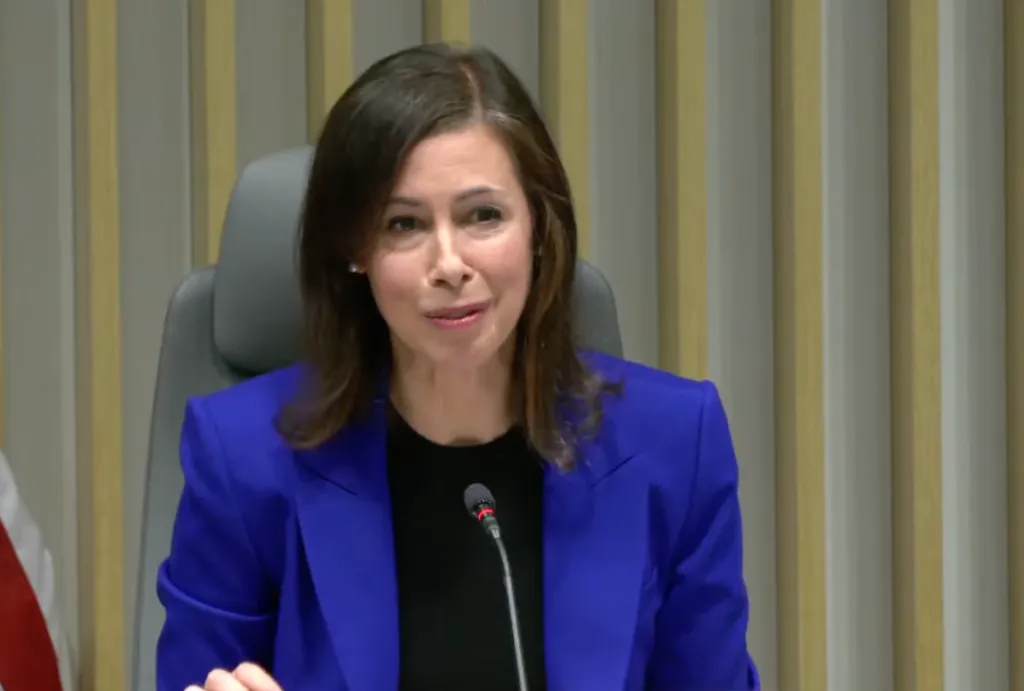FCC Adopts Rules on 911 Routing, Disaster Reporting at January Meeting
The agency also clarified space debris mitigation rules and moved to fine pirate radio stations.
Jake Neenan

WASHINGTON, January 25, 2024 – The Federal Communications Commission moved to improve 911 call routing, mandate disaster reporting, and clarify space debris rules at its Thursday open meeting.
The agency also proposed fines against unauthorized radio operators in the Miami area.
While some FCC initiatives have passed along partisan lines since Democrats took a majority on the commission in September 2023, all measures were adopted unanimously on Thursday.
Location-based 911 routing
The commission approved rules requiring mobile providers to use location-based routing for calls and texts to 911. Nationwide providers will have six months from the effective date of the rules to implement the practice, while smaller providers will have two years.
Location-based routing means 911 calls are directed to the 911 call center nearest to the caller’s location, rather than the call center nearest to the first tower that handles call traffic. That system can sometimes result in calls being directed to the wrong call center – the National Emergency Number Association has said in comments to the agency that it estimates 23 million 911 calls are delayed each year by legacy routing systems.
One nationwide provider, AT&T, has already implemented location-based routing across its networks.
“Today’s report and order simply sets a deadline for the remaining nationwide providers, who have already begun deploying location-based 911 routing on portions of their networks, to keep going and to get it done,” said FCC Commissioner Anna Gomez.
Disaster reporting
The agency also adopted rules requiring VoIP, cable, wireless, and wireline providers to report to the agency on the status of their infrastructure during disasters.
The FCC activates its Disaster Information Reporting System in certain areas where a natural disaster has or is likely to occur. DIRS has collected daily network status information from providers in affected areas on a voluntary basis, but providers will no longer have the ability to opt out of DIRS reporting.
Where and when DIRS is active, providers will be exempt from an existing mandatory reporting program, the Network Outage Reporting System. Providers are required to file NORS reports when outages meet certain conditions, but since natural disasters have the potential to cause outages that would normally require NORS reporting, the commission will mandate DIRS reporting for the duration of the activation.
Providers will also have to submit a final summary report when the commission deactivates DIRS.
The public draft of the order circulated earlier this month says the agency plans on giving providers until November 30, 2024 to comply, but the date could be moved up if the Office of Management and Budget completes a review sooner.
In approving the order, the FCC is also seeking comment on whether to expand the DIRS reporting requirements to providers of other services, like TV, radio, satellite, and broadband.
Other matters
The commission moved to provide clarification on its orbital debris mitigation policies, which it overhauled in 2020. It’s a response to several satellite companies filing a petition for reconsideration on parts of the order’s reporting requirements.
The agency did not change or strike down its existing rules, but offered guidance and clarification on certain parts.
Additionally, the FCC proposed more than $3.5 million in fines against unlicensed radio stations in the Miami area. The 2020 PIRATE Act allows the agency to fine entities using the AM or FM radio bands without a license up to $2.3 million. The operators will have an opportunity to respond before the agency formally issues its proposed fines.









Member discussion